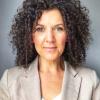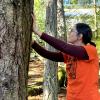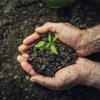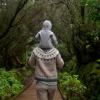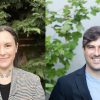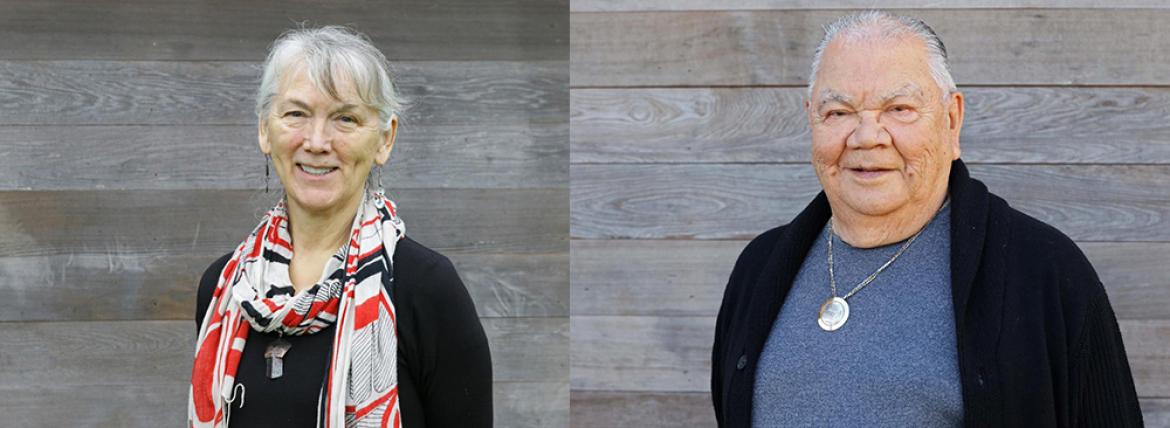
May 8, 2019 - 1:45am
Have you met VIU’s new Elders-in-Residence providing cultural and spiritual guidance and other supports for students and employees at the Nanaimo Campus?
Maxine Hayman Matilpi (Lakwa) and Barney Williams (Klitch-wii-taa) are the institution’s newest Elders-in-Residence based out of Shq’apthut – VIU’s Aboriginal Gathering Place.
Matilpi, of Kwakiutl/Ma’amtigilia and Scottish/English descent, also works for Vancouver-based West Coast Environmental Law as the project lead for the Revitalizing Indigenous Law for Land, Air and Water (RELAW) project. Through this project, she works with First Nations around the province to articulate traditional laws, finding principles of laws within ancient stories.
Aside from a career as a lawyer, Matilpi has a diverse and wide-ranging employment background – she’s also been a paramedic, first aid attendant in a logging camp, can-can girl in Dawson City, midwife, fitness instructor, marriage commissioner, chief negotiator for a First Nation, Elder-in-Residence at North Island College and university professor at VIU.
She remembers how important Elder support is for students from when she studied at VIU in the mid-1990s, when it was Malaspina University-College.
“Doing the Arts One program here was really grounding for me, it strengthened my identity before I went to law school at the University of Victoria,” she says.
Now that Matilpi is back at VIU – this time in her Elder-in-Residence capacity – she’s excited to help students realize their educational goals.
“I remember, when I first decided I wanted to go to law school, being afraid to say it out loud,” she reflects. “When I was growing up, I didn’t know any lawyers. I can be that person for students. It’s an opportunity to give back and provide mentorship for students.”
Barney Williams (Klitch-wii-taa), a member of the Tla-o-qui-aht First Nation on Meares Island near Tofino, is also a VIU alumnus – he received his diploma in social work in 1973.
As a young boy, Williams was taken from his family and put in residential school. Suffering from post-traumatic stress disorder after this experience, he turned to alcohol. Eventually, he sought a career first as a social worker and then as a counsellor, helping others with similar experiences.
“I came out of school beaten, downtrodden and really messed up for quite a few years,” he remembers. “As a result, I’ve devoted part of my career to investigating post-traumatic stress disorder and how it affects residential school survivors.”
In his quest to help others deal with the effects of residential school, Williams worked for the federal government for 17 years as a social worker, travelling to different communities up and down Vancouver Island and the West Coast. Then he started working at an addictions treatment centre in Williams Lake and became a registered clinical therapist. For eight years, Williams travelled across Canada with the Truth and Reconciliation Commission as one of the Indian Residential School Survivor Committee’s Elder advisors.
“Listening to the thousands of stories, we all realized that we had gone through the same thing. It had the effect of reminding many of us how important family is,” says Williams, who received an honorary doctorate of laws from the University of Victoria in 2017 for his reconciliation work.
Fluent in the Nuu-cha-nulth language, Williams continues to live a traditional lifestyle. He served as a Traditional Keeper of the Beach for his nation for more than 60 years, passing the role to his son in 2015. Williams continues to seek ways to teach mental health from a traditional perspective and blend Western and Indigenous mental health treatments. He loves interacting with students, one of whom is his granddaughter, helping them through difficulties and providing cultural support.
“I believe it’s important for Indigenous and non-Indigenous students alike to maintain a sense of knowing who they are and where they come from,” he says. “What I like about being here is you never know what your day is going to look like.”
Sylvia Scow, Aboriginal Projects Coordinator and Elder Support, says Matilpi and Williams bring a breadth of experiences and expertise to VIU for the benefit of students and employees.
“They bring so much in terms of their knowledge, their personalities and their abilities to provide support – not just academic support, but love,” she says. “Their willingness and capacity to share this love and cultural and academic support has a transformative effect on student lives.”
Tags: Teaching and Learning

